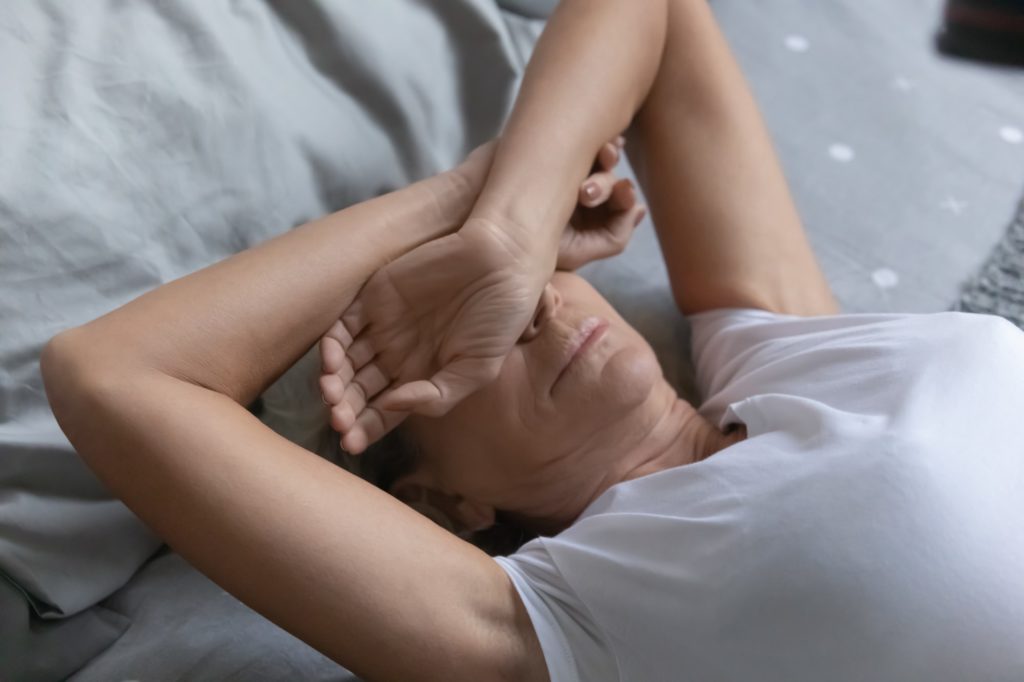Menopause and sleep
A lot of women experience poorer sleep quality once they hit menopause. But’s what’s the link between menopause and sleep? And what can you do about it?

What is menopause?
Menopause marks the end of a woman’s reproductive years, and is a normal part of life. Menopause occurs when it has been 12 months since a woman had her last menstrual period. However, symptoms of menopause can begin as much as 10 years earlier and can persist for some years after menopause. The years prior to menopause are referred to as peri-menopause.
Menopause and sleep
Many women notice that during peri-menopause and menopause their sleep quality diminishes. Typical problems include difficulty falling and staying asleep, waking during the night or early in the morning, nightly hot flushes, insomnia and increased snoring and sleep apnoea.
Why does menopause impact sleep?
Menopausal symptoms are caused by decreasing levels of oestrogen. These include hot flushes and sweats, decreased mood, depression, stress and anxiety. Researchers believe that along with increased body temperatures, mood and anxiety can contribute to women finding it harder to fall asleep and stay asleep.
In addition, declining oestrogen contributes to joint aches and pains, and problems passing urine, which can also disrupt sleep. Reduced levels of progesterone also play a part, as progesterone has a sleep-inducing effect which acts on brain pathways. Levels of melatonin, a hormone that is vital for sleep, also decreases with age. To compound the problem even further, secretion of melatonin is partly influenced by oestrogen and progesterone, both of which decrease during menopause.
What can you do?
Treatment with Hormone Replacement Therapy (HRT) has been found to help relieve menopausal symptoms that interfere with sleep. However, you should speak to your doctor about your symptoms and whether this therapy is suitable for you.
Other lifestyle measures include:
- Ensuring your room is adequately ventilated
- Sleeping with a fan or air-conditioning if you suffer from night sweats and flushes
- Wearing light, breathable clothing to bed and avoiding heavy blankets
- Avoiding large meals before bedtime
- Avoiding stimulants before bed such as caffeine, alcohol and nicotine
- Reducing stress
- Employing relaxation techniques before bed.
A key component in getting a good night’s sleep is making sure you’re sleeping on the right mattress. BedGuard has a range of supportive, waterproof mattresses to suit everyone. Browse our range in-store or online today.





